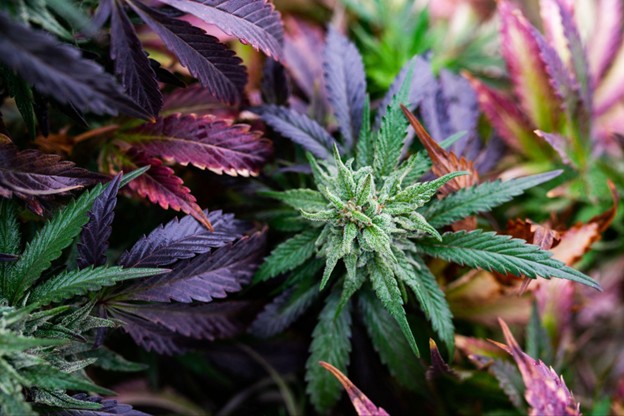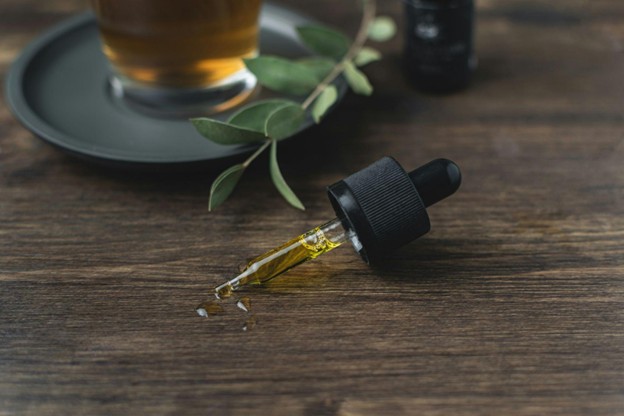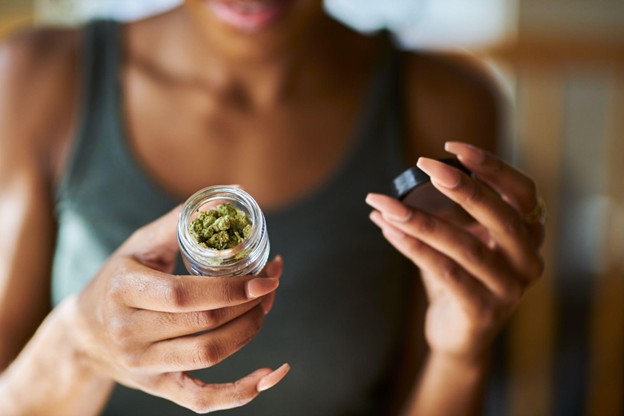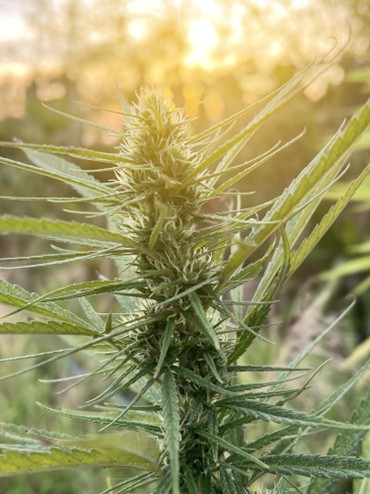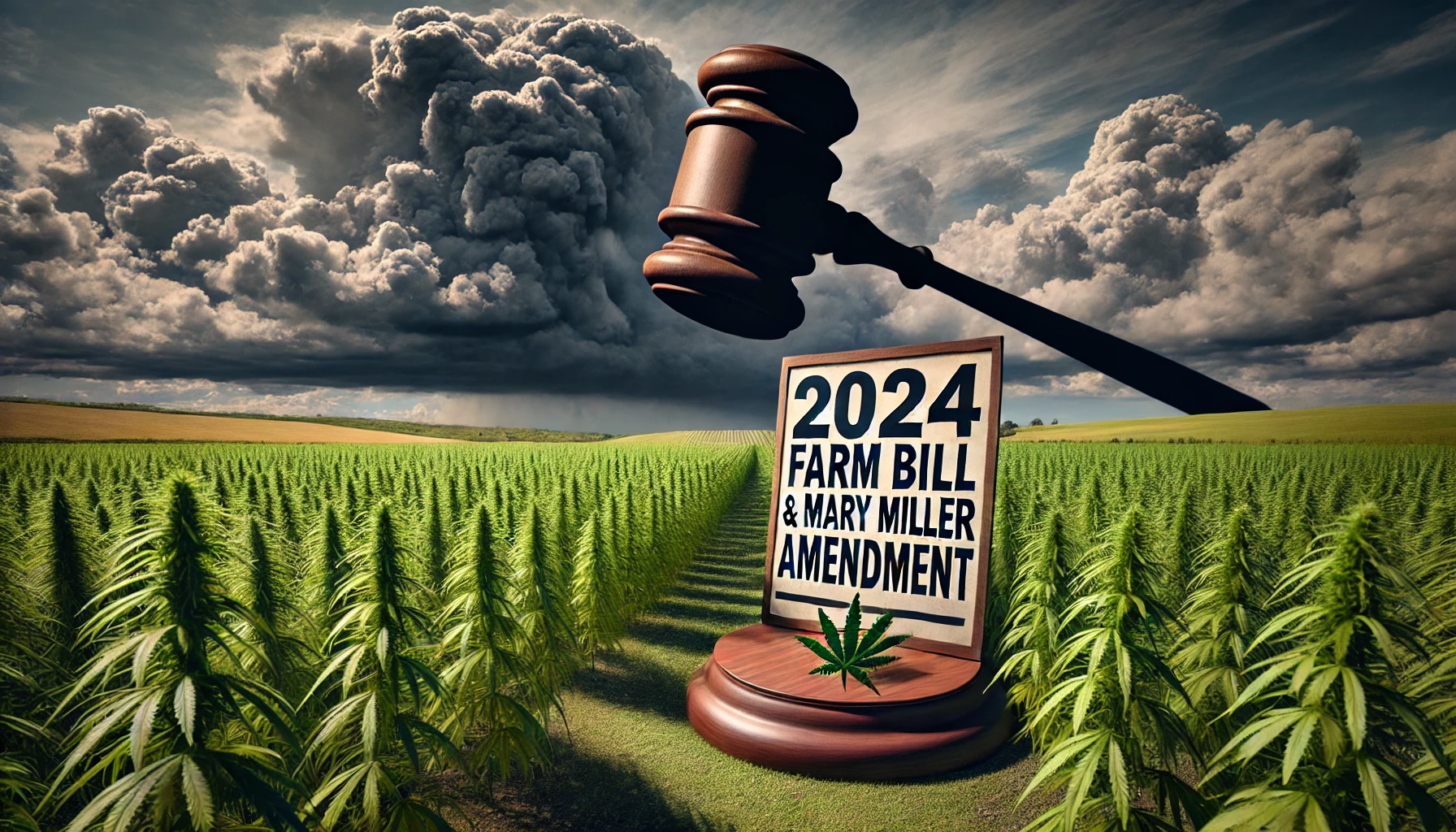What is cannabis? It’s the question that’s been on millions of minds lately—and honestly, it’s about time we had an honest conversation about it. This isn’t your grandmother’s “reefer madness” scare tactics or some sketchy dealer’s sales pitch. We’re talking about a plant that’s been humanity’s companion for over 6,000 years and is now having its moment in the scientific spotlight.
Whether you’ve been curious about the buzz around CBD, wondering if cannabis could help with that nagging pain, or you’re just trying to understand what all the fuss is about—you’re in the right place. Let’s cut through the noise and get real about cannabis: what it is, what it does, and why everyone from your yoga instructor to your doctor might be talking about it.
What Is the Simple Definition of Cannabis?
Technically cannabis is a genus of flowering plants that include marijuana and hemp. But here’s the deal: cannabis is basically nature’s Swiss Army knife. It’s a flowering plant that produces over 100 different chemical compounds called cannabinoids, and these little molecular messengers have a knack for making our bodies feel… well, different. Better, in many cases.
Think of cannabis as having two main personalities:
- THC (Tetrahydrocannabinol): The life of the party—this is what gets you “high” and makes Netflix documentaries about penguins absolutely riveting
- CBD (Cannabidiol): The zen master—all the therapeutic vibes without the psychoactive roller coaster
The beautiful thing? You can choose your adventure. Want the full experience? Go with THC-rich products. Prefer to keep your feet on the ground while your body feels amazing? CBD’s got your back.
Cannabis vs. Hemp: Same Plant, Different Vibes
Here’s where it gets interesting—and a little confusing if we’re being honest. Cannabis and hemp are literally the same plant, just with different life choices:
| Cannabis | Hemp |
| The rebel: >0.3% THC | The straight-A student: <0.3% THC |
| Gets you high | Keeps you grounded |
| Federally illegal (but states are rebelling) | Federally legal thanks to the 2018 Farm Bill |
| Party time or medicine time | Wellness time, all the time |
It’s like the difference between a margarita and a mocktail—same base ingredients, wildly different outcomes.
The Fascinating Origin Story of Cannabis
Picture this: 6,000 years ago, while most of humanity was still figuring out agriculture, some brilliant ancient farmers were already cultivating cannabis. And get this—they weren’t just using it to get stoned and contemplate the meaning of life (though who knows, maybe they were).
Our ancestors were practical:
- Seeds fed families with protein-packed nutrition
- Stalks became clothes, ropes, and building materials
- Flowers served as medicine and spiritual sacrament
The whole “cannabis bad, hemp good” narrative? That’s a modern invention, barely a century old. For most of human history, this plant was just… useful, revolutionary even.
What Is the Drug Cannabis Used For?
Plot twist: cannabis isn’t just about getting high anymore. In fact, some of the most exciting developments are happening in sterile research labs and clinical settings. According to the National Academy of Sciences, researchers have found solid evidence that cannabis actually works for several medical conditions.
The Heavy Hitters (Where Science Says “Yes, This Works”):
Chronic Pain Relief: Remember when your only options for persistent pain were “grin and bear it” or “pop another pill”? A major 2018 review found that nearly 30% of people using cannabis experienced significant pain reduction. That’s not just wishful thinking—that’s thousands of people getting their lives back.
Childhood Epilepsy: This one’s a tear-jerker. Kids with severe epilepsy who weren’t responding to traditional medications? The FDA-approved CBD medication Epidiolex is helping some of them reduce seizures by 50-70%. Parents are literally watching their children get better.
Cancer Treatment Side Effects: Chemotherapy is brutal, but cannabis-based medications are helping patients keep food down and actually want to eat. Multiple studies show it works as well as traditional anti-nausea meds, often with fewer side effects.
The Promising Up-and-Comers:
Anxiety and Sleep Issues: Harvard researchers are finding that CBD might be anxiety’s kryptonite, helping people feel more centered without the fog of traditional medications.
Inflammatory Conditions: Early studies suggest cannabis compounds might help calm down our body’s inflammatory responses—potentially good news for arthritis sufferers and others dealing with chronic inflammation.
Is CBD the Same as Cannabis? Let’s Clear This Up
Short answer: Nope. But the confusion is totally understandable.
Think of it like this:
- Cannabis = The entire jazz band with all its instruments
- CBD = Just the saxophone player (a really talented one, but still just one musician)
CBD is having its moment because it brings a lot of the benefits without the psychoactive drama. The World Health Organization basically gave it a clean bill of health, saying it shows “no effects indicative of any abuse or dependence potential” and “no evidence of public health related problems.”
What makes CBD special:
- Zero high, maximum chill: All the therapeutic potential, none of the couch lock
- Legal everywhere: Hemp-derived CBD is federally kosher
- Versatile: From gummies to face creams, CBD’s in everything these days
- Gentle: Most people tolerate it like a champ
Is Cannabis Good for You? The Nuanced Reality
Here’s the thing—asking if cannabis is “good for you” is like asking if exercise is good for you. The answer is: it depends on who you are, what you’re dealing with, and how you approach it.
When Cannabis Might Be Your Friend:
For Specific Medical Stuff:
- Chronic pain that’s been cramping your style
- Sleep issues that have you counting sheep until dawn
- Anxiety that feels like a constant background hum
- Inflammation that’s making you feel older than your years
For General Wellness Vibes:
- Antioxidant properties that might help your cells stay happy
- Stress management when life gets overwhelming
- Better sleep quality for those precious REM cycles
When Cannabis Might Not Be the Move:
Short-term reality checks:
- Coordination might take a little vacation
- Short-term memory could get a bit fuzzy
- Some people feel anxious instead of relaxed (usually a dosage thing)
Long-term considerations:
- Smoking anything isn’t great for your lungs (but vaping and edibles sidestep this entirely)
- Some folks might develop dependency
- Certain medications don’t play well with cannabinoids
The key? Start low, go slow, and listen to your body. Cannabis isn’t a magic bullet, but for many people, it’s a valuable tool in their wellness toolkit.
Who Should Avoid Taking CBD? The Important Stuff
Look, CBD might be gentler than THC, but it’s still a biologically active compound. Some people should pump the brakes:
The “Let’s Be Extra Careful” List:
Expecting or nursing moms: The research just isn’t there yet, and when it comes to growing humans, better safe than sorry. The FDA recommends avoiding CBD during pregnancy and breastfeeding.
Kiddos: Unless we’re talking about FDA-approved epilepsy treatment under medical supervision, children should steer clear.
Liver concerns: High doses might affect liver function, so if your liver’s already working overtime, chat with your doctor first.
The Drug Interaction Dance:
CBD can be a bit of a party crasher when it comes to other medications. It affects the same liver enzymes that process:
- Blood thinners
- Seizure meds
- Heart medications
- Some antidepressants
Pro tip: Always loop in your healthcare provider if you’re mixing CBD with prescription meds. They’ve got the expertise to help you navigate potential interactions safely.
Is Cannabis Legal in the US? The Wild West of Weed Law
Buckle up, because cannabis law in America is like a patchwork quilt sewn by someone who’d been sampling the merchandise. Here’s the current lay of the land:
The Federal Situation:
- Cannabis: Still federally illegal (Schedule I, alongside heroin—yeah, it’s complicated)
- Hemp products: Totally legal thanks to the 2018 Farm Bill
- The Future: DEA might reschedule cannabis to Schedule III, which would be huge
State-by-State Reality (2025 Edition):
- 24 states plus D.C. say “party on” for recreational use
- 40 states are cool with medical cannabis
- The holdouts: A shrinking group still saying “not in my backyard”
What This Means for You:
- Can’t cross state lines with cannabis, even between legal states
- Your boss can still say no, regardless of state laws
- Flying with cannabis: Just don’t
- Banking: Still weird and cash-heavy in many places
Bottom line: Check your local laws, because what’s legal in Colorado might land you in trouble in Texas.
What Is Cannabis Supposed to Do? Your Body’s Hidden Network
Here’s where cannabis gets really fascinating. Turns out, our bodies have been waiting for cannabis this whole time—literally. We’ve got an entire biological system called the endocannabinoid system (ECS) that cannabis plugs right into.
Your ECS Is Basically Your Body’s IT Department:
It manages:
- Pain signals and how you process discomfort
- Mood regulation and emotional balance
- Sleep cycles and when you feel tired or alert
- Appetite and metabolism
- Memory formation and cognitive function
- Immune responses and inflammation
How Cannabis Hacks the System:
CB1 Receptors (mostly in your brain):
- THC binds here directly—hello, altered consciousness
- CBD works more subtly, like a gentle systems administrator
CB2 Receptors (hanging out in your immune system):
- Both THC and CBD influence inflammation here
- May help keep your immune system in check
It’s like cannabis speaks the same language as your body’s internal communication network. No wonder it can affect so many different things—it’s working with systems that are already there.
Exploring Cannabis Products: Choose Your Own Adventure
Gone are the days when your only option was whatever your friend’s cousin had in a baggie. Today’s cannabis market is like a sophisticated pharmacy meets artisanal boutique:
The Modern Cannabis Menu:
- THCA Flower (The Legal Loophole Champion)
- Raw cannabis that becomes psychoactive when you heat it
- Federally legal but packs the full cannabis punch
- Perfect for states where regular cannabis is still off-limits
- CBD Products (The Gentle Giant)
- Everything from gummies to bath bombs
- All the wellness, none of the “wow, is that a talking lamp?”
- Your gateway to the cannabis world without diving into the deep end
- Delta-9 Edibles (The Marathon Runner)
- Long-lasting, predictable experiences
- Start low—these can sneak up on you like a ninja
- Perfect for people who want precise control
- Vapes and Concentrates (The Precision Instruments)
- Fast-acting and controllable
- Easier on your lungs than smoking
Great for experienced users who know what they want
Consumption Method Reality Check:
| Method | How Fast | How Long | Control Level | Lung Friendly? |
| Smoking | Super fast | 1-3 hours | Pretty good | Nope |
| Vaping | Really fast | 1-3 hours | Excellent | Nope |
| Edibles | Patience required (30-120 min) | All day affair (4-8 hours) | Surgical precision | Totally |
| Tinctures | Medium fast (15-45 min) | Half-day (2-6 hours) | Like a volume knob | Completely |
| Topicals | Local delivery (15-30 min) | Regional relief (2-4 hours) | Pinpoint accuracy | Zero impact |
Is Cannabis Used as a Painkiller? The Pain Game Changer
Absolutely, and it’s kind of a big deal. According to the National Academy of Sciences, chronic pain is hands-down the #1 reason people turn to medical cannabis. We’re talking about people who’ve tried everything else and finally found something that works.
Where Cannabis Really Shines:
Nerve Pain (The Stubborn Kind): You know that burning, shooting, or pins-and-needles pain that doesn’t respond to regular painkillers? Cannabis has a special talent for nerve-related pain that comes from diabetes, injury, or conditions like shingles.
Inflammatory Pain: Arthritis, autoimmune flare-ups, and other inflammatory conditions might meet their match with cannabis. It’s like having a bouncer for your pain receptors and a janitor for your inflammation.
The Chronic Pain Cycle Breaker: When you’re dealing with conditions like fibromyalgia, cannabis doesn’t just tackle the pain—it might help with the sleep problems and mood issues that come along for the ride.
How It Actually Works:
Cannabis doesn’t just mask pain like popping an aspirin. It’s more like having a conversation with your pain receptors, telling them to chill out while also addressing the underlying inflammation. Plus, better sleep and improved mood make everything more manageable.
Real talk: Cannabis isn’t going to replace your entire pain management strategy, but for many people, it’s become a game-changing piece of the puzzle.
Is Cannabis Good for Arthritis? The Joint Venture
The short answer is: it’s looking promising, but we’re still figuring it out. The longer answer? Early research suggests cannabis might be arthritis’s new best friend, but most of the really solid evidence is still in the works.
What We Know So Far:
The Anti-Inflammation Station: Animal studies show that CBD applied topically can reduce arthritis-related swelling and pain. It’s like having a targeted anti-inflammatory that goes right where you need it.
The Pain Relief Express: Many arthritis sufferers report that cannabis helps them move better, sleep better, and generally feel more human. Some even say they’ve been able to reduce their reliance on traditional pain meds.
The Sleep Connection: Arthritis pain loves to party at night, keeping you awake when you should be recovering. Cannabis might help break that cycle by addressing both the pain and the sleep disruption.
The Reality Check:
Most of the research is still in the “promising but not proven” category. We need more human studies, better understanding of dosing, and longer-term data. But for people who’ve been dealing with arthritis pain for years, even preliminary relief can feel life-changing.
If you’re considering cannabis for arthritis, work with healthcare providers who get both cannabis and joint health. It’s all about finding what works for your specific situation.
How Does CBD Make You Feel? The Non-High High
This might be the most common question we hear: “Will CBD make me feel weird?” The honest answer? You’ll probably feel… better. But not in a “whoa, dude” kind of way.
The Real CBD Experience:
Physical Vibes:
- Your shoulders might actually drop from around your ears
- That knot in your stomach from stress could loosen up
- Aches and pains might dial down from a 7 to a manageable 4
- Sleep might come easier and feel more restful
Mental Shifts:
- Racing thoughts might slow to a reasonable pace
- That constant background anxiety could fade to a whisper
- Focus might improve without feeling wired
- Overall mood might feel more… stable
What CBD Definitely Won’t Do:
- Make you giggle at everything
- Give you the munchies for an entire bag of chips
- Make you forget what you were talking about mid-sentence
- Create any kind of “high” or altered state
The Individual Factor:
Here’s the thing—recent research shows that most people (about 90%) tolerate CBD really well. The other 10%? They might experience mild drowsiness or temporary concentration changes, but nothing dramatic.
Your experience depends on:
- How much you take (start low!)
- The quality of your product (lab-tested is non-negotiable)
- Your individual biology and metabolism
- What’s going on in your life when you take it
Most people describe CBD as feeling like they took the best parts of a spa day and put them in a bottle.
Understanding Cannabis Quality: Don’t Get Played
Here’s the uncomfortable truth: not all cannabis products are created equal. Some are carefully crafted plant medicine, others are… well, let’s just say you get what you pay for.
What Separates the Good from the Sketchy:
Lab Testing (Your Safety Net):
- Potency verification: You’re getting what the label promises
- Pesticide screening: No nasty chemicals hitching a ride
- Heavy metals testing: Clean soil = clean product
- Microbial testing: No unwanted bacteria or mold parties
Growing Practices That Matter:
- Organic cultivation without synthetic shortcuts
- Clean water and soil sources
- Natural pest management (not chemical warfare)
- Proper harvesting and curing (this affects everything)
Reading Labels Like a Pro:
Essential Intel:
- Cannabinoid breakdown (CBD, THC, CBG percentages)
- Certificate of Analysis (COA) batch numbers you can actually verify
- Clear serving recommendations (not just “take as needed”)
- Full ingredient list including carrier oils
- Harvest and expiration dates (fresh matters)
At Asheville Dispensary, we’ve made transparency our thing. Every product comes with detailed lab reports because you deserve to know exactly what you’re putting in your body.
Cannabis and the Future: What’s Next?
We’re honestly living through the early days of a cannabis revolution. What started as “just a plant” is becoming sophisticated medicine, personalized wellness, and legitimate healthcare.
What’s on the Horizon:
Personalized Cannabis Medicine: Scientists are working on genetic testing to predict how your body will respond to different cannabinoids. Imagine getting a cannabis prescription tailored specifically to your DNA.
The Minor Cannabinoid Revolution: While everyone’s been talking about CBD and THC, researchers are getting excited about CBG (the “mother cannabinoid”), CBN (the sleep specialist), and THCV (the appetite suppressant).
Healthcare Integration: More doctors are getting cannabis education, hospitals are studying cannabinoid protocols, and insurance companies are starting to pay attention. Cannabis is moving from the margins to mainstream medicine.
Finding Your Cannabis Sweet Spot: Quality Matters
Whether you’re dipping your toes into cannabis waters or diving deeper into plant medicine, choosing the right source can make or break your experience.
What to Look for in Cannabis Partners:
Transparency: COAs should be easy to find, not buried in fine print
Education: Staff who can actually answer your questions (beyond “this one’s popular”)
Quality sourcing: Organic growing practices and sustainable methods
Product variety: Options for different needs, experience levels, and preferences
Compliance: Following all the rules so you don’t have to worry
Community reputation: Real customer reviews and local trust
Why Asheville Dispensary Gets It Right:
Since 2018, Asheville Dispensary has been on a mission to share “the wealth of the hemp plant” with people seeking natural wellness alternatives. With locations in West Asheville, NC and Chattanooga, TN, plus shipping nationwide, we’ve built our reputation on:
Quality Control: Every product batch gets third-party lab testing—no exceptions, no shortcuts.
Real Education: Our team actually knows their stuff and loves sharing knowledge, not just pushing products.
Community Focus: We’re part of the communities we serve, reflecting Asheville’s natural health values and Southern hospitality.
Curated Selection: From premium THCA flower to specialized wellness blends, we choose products that we’d use ourselves.
Accessibility: Whether you’re a curious beginner or a cannabis connoisseur, we’ve got options that fit your comfort level and goals.
Your Cannabis Journey Starts Here
Cannabis isn’t just having a moment—it’s having a revolution. What our ancestors knew instinctively, science is now confirming with rigorous research and clinical trials. This isn’t about getting high (though if that’s your thing, cool). It’s about reclaiming a natural tool for wellness that prohibition tried to erase from human memory.
From FDA-approved treatments for childhood epilepsy to emerging applications for anxiety, pain, and inflammation, cannabis represents a return to plant-based medicine with modern scientific backing. The key to success? Quality products, proper education, and finding trusted guides for your journey.
The Bottom Line:
- Cannabis is complex and fascinating, with over 100 compounds working together
- Science backs its use for several medical conditions, with more research happening daily
- CBD offers therapeutic benefits without the psychoactive effects
- Legal landscape is evolving rapidly—stay informed about your local laws
- Quality and testing matter more than flashy marketing or low prices
- Professional guidance helps, especially if you’re using cannabis for health reasons
Ready to explore what cannabis might do for you? Check out Asheville Dispensary’s educational resources and discover how plant medicine could enhance your wellness journey. Because everyone deserves access to nature’s pharmacy—and the knowledge to use it wisely.
Your Most-Asked Cannabis Questions, Answered
What is the simple definition of cannabis?
A: Cannabis is a plant that produces over 100 cannabinoids (like THC and CBD) that interact with your body’s endocannabinoid system to create therapeutic and sometimes psychoactive effects. Think of it as nature’s medicine cabinet in plant form.
What is the drug cannabis used for?
A: Medically, cannabis is proven effective for chronic pain, severe childhood epilepsy, and chemotherapy side effects. It’s also being researched for anxiety, sleep disorders, inflammation, and various other conditions where traditional treatments fall short.
Is CBD the same as cannabis?
A: Nope! CBD is just one cannabinoid found in cannabis. Cannabis is the whole plant with all its compounds, while CBD is like getting just the saxophone player from a jazz band—talented, but only part of the full experience.
Is cannabis good for you?
A: It can be, depending on your specific needs and how you use it. For certain medical conditions and wellness goals, cannabis can be incredibly beneficial. Like any tool, it’s about using it appropriately and with quality products.
Who should avoid taking CBD?
A: Pregnant and breastfeeding women, children (unless under medical supervision for epilepsy), people with liver issues, and anyone taking medications that might interact with CBD should be extra cautious or avoid it entirely.
Is cannabis legal in the US?
A: It’s complicated! Hemp-derived products (under 0.3% THC) are federally legal. Regular cannabis is still federally illegal but legal for medical use in 40 states and recreational use in 24 states plus D.C. Always check your local laws.
What is cannabis supposed to do?
A: Cannabis works with your body’s endocannabinoid system, which regulates pain, mood, sleep, appetite, and immune function. Basically, it helps your body maintain balance and manage various biological processes more effectively.
Is cannabis used as a painkiller?
A: Absolutely! Chronic pain relief is actually the #1 reason people use medical cannabis. It’s especially effective for nerve pain and inflammatory conditions that don’t respond well to traditional painkillers.
Is cannabis good for arthritis?
A: Early research is promising—studies suggest cannabis can reduce arthritis-related inflammation and pain, especially when applied topically. Many arthritis sufferers report improved mobility and sleep, though we need more human studies to be certain.
How does CBD make you feel?
A: Most people describe CBD as feeling more relaxed and balanced without any “high.” You might notice less anxiety, better sleep, reduced pain, and an overall sense of calm—like taking the edge off life’s rough moments without losing mental clarity.

